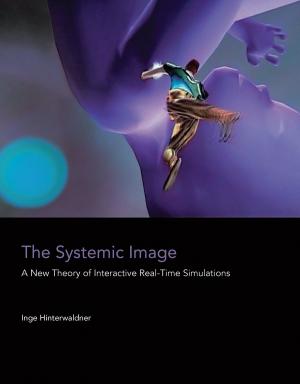| Author: | Steven Horst | ISBN: | 9780262333634 |
| Publisher: | The MIT Press | Publication: | June 24, 2016 |
| Imprint: | The MIT Press | Language: | English |
| Author: | Steven Horst |
| ISBN: | 9780262333634 |
| Publisher: | The MIT Press |
| Publication: | June 24, 2016 |
| Imprint: | The MIT Press |
| Language: | English |
An argument that we understand the world through many special-purpose mental models of different content domains, and an exploration of the philosophical implications.
Philosophers have traditionally assumed that the basic units of knowledge and understanding are concepts, beliefs, and argumentative inferences. In Cognitive Pluralism, Steven Horst proposes that another sort of unit—a mental model of a content domain—is the fundamental unit of understanding. He argues that understanding comes not in word-sized concepts, sentence-sized beliefs, or argument-sized reasoning but in the form of idealized models and in domain-sized chunks. He argues further that this idea of “cognitive pluralism”—the claim that we understand the world through many such models of a variety of content domains—sheds light on a number of problems in philosophy.
Horst first presents the “standard view” of cognitive architecture assumed in mainstream epistemology, semantics, truth theory, and theory of reasoning. He then explains the notion of a mental model as an internal surrogate that mirrors features of its target domain, and puts it in the context of ideas in psychology, philosophy of science, artificial intelligence, and theoretical cognitive science. Finally, he argues that the cognitive pluralist view not only helps to explain puzzling disunities of knowledge but also raises doubts about the feasibility of attempts to “unify” the sciences; presents a model-based account of intuitive judgments; and contends that cognitive pluralism favors a reliabilist epistemology and a “molecularist” semantics. Horst suggests that cognitive pluralism allows us to view rival epistemological and semantic theories not as direct competitors but as complementary accounts, each an idealized model of different dimensions of evaluation.
An argument that we understand the world through many special-purpose mental models of different content domains, and an exploration of the philosophical implications.
Philosophers have traditionally assumed that the basic units of knowledge and understanding are concepts, beliefs, and argumentative inferences. In Cognitive Pluralism, Steven Horst proposes that another sort of unit—a mental model of a content domain—is the fundamental unit of understanding. He argues that understanding comes not in word-sized concepts, sentence-sized beliefs, or argument-sized reasoning but in the form of idealized models and in domain-sized chunks. He argues further that this idea of “cognitive pluralism”—the claim that we understand the world through many such models of a variety of content domains—sheds light on a number of problems in philosophy.
Horst first presents the “standard view” of cognitive architecture assumed in mainstream epistemology, semantics, truth theory, and theory of reasoning. He then explains the notion of a mental model as an internal surrogate that mirrors features of its target domain, and puts it in the context of ideas in psychology, philosophy of science, artificial intelligence, and theoretical cognitive science. Finally, he argues that the cognitive pluralist view not only helps to explain puzzling disunities of knowledge but also raises doubts about the feasibility of attempts to “unify” the sciences; presents a model-based account of intuitive judgments; and contends that cognitive pluralism favors a reliabilist epistemology and a “molecularist” semantics. Horst suggests that cognitive pluralism allows us to view rival epistemological and semantic theories not as direct competitors but as complementary accounts, each an idealized model of different dimensions of evaluation.















